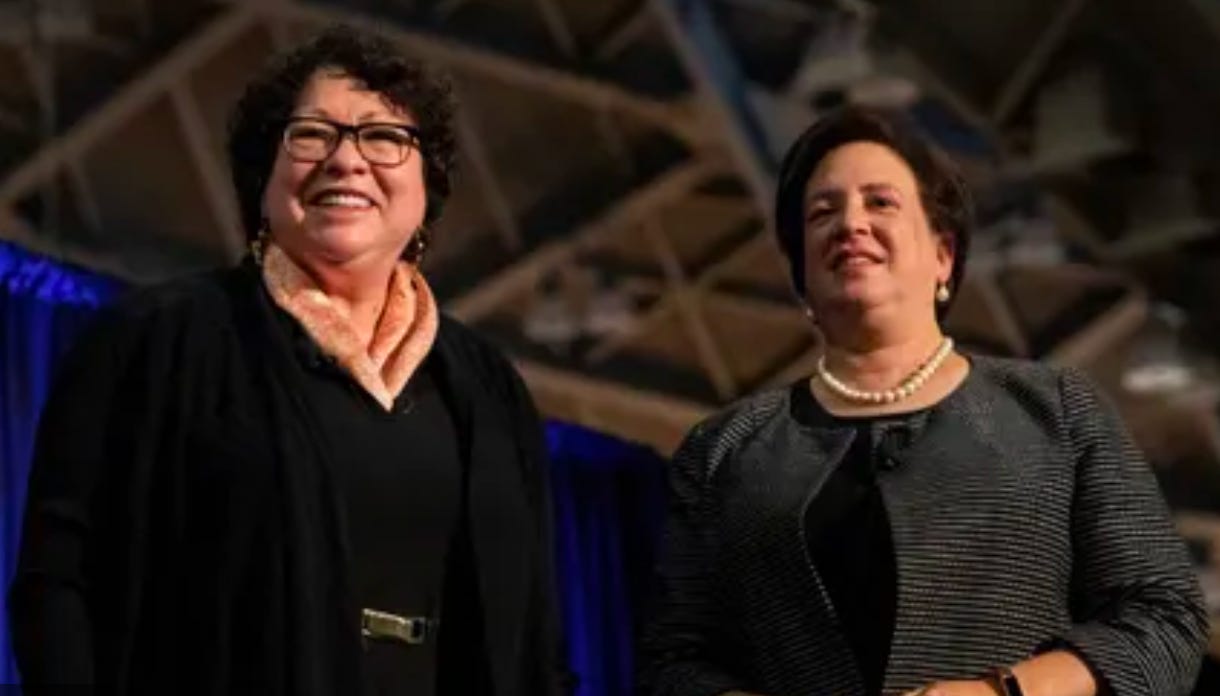Does the high court really want to regulate public health?
In a move widely interpreted as a first manifestation of the Supreme Court’s new rightward tilt, conservative justices last week voted 5-4 to enjoin New York Gov. Andrew Cuomo from enforcing an order sharply limiting church attendance to prevent the spread of COVID-19.
The order limited worship services to 10 people in the hardest hit “red” zones, and 25 people in severely hit “orange” zones. But it excluded businesses deemed essential, including, the high court majority opinion noted caustically, “things such as acupuncture facilities, campgrounds and garages.”
“The restrictions at issue here, by effectively barring many from attending religious services, strike at the very heart of the First Amendment’s guarantee of religious liberty,” the unsigned majority opinion stated. “Before allowing this to occur, we have a duty to conduct a serious examination of the need for such a drastic measure.”
Chief Justice John Roberts sided with the three remaining liberals on the court in voting against the injunction. He based his dissent on New York’s decision to rescind the order shortly before the high court hearing.
But even he left the door open to subsequent claims that religious freedom overrides the need to protect public health. “If the Governor does reinstate the numerical restrictions the applicants can return to this Court, and we could act quickly on their renewed applications,” Roberts wrote in his dissent.
On the surface, the narrow majority, and even dissenting Roberts, appear to be siding with those who claim that rights like freedom of religion, which are guaranteed in the constitution, take precedence over a state’s right to protect the public’s health in an emergency. As Justice Samuel Alito, who was the likely author of the unsigned opinion, said in a recent speech: “All sorts of things can be called an emergency or disaster of major proportions. Simply slapping on that label cannot provide the ground for abrogating our most fundamental rights.”
So, who then gets to decide when an emergency exists, and what steps can be taken to combat the emergency? When it comes to public health, that police power is given to the states under the 10th amendment. The federal government, in cases going back more than a century, has also been given that right through the Commerce Clause.
Is it possible for states to exercise those powers in ways that violate religious or other constitutionally guaranteed freedoms? Of course. An out-of-control public health authority could deliberately impose restrictions on churches that they don’t impose on similar gathering places like public arenas, theaters or concert halls.
The ruling addressed that issue, even as it seemed to assert an absolute right for religious autonomy. “They single out houses of worship for especially harsh treatment,” the unsigned opinion stated, citing the questionable businesses like liquor stores given essential status. But what that opinion failed to note was that some businesses where large gatherings take place – theaters, concert halls – were shuttered under the governor’s order.
Justice Brett Kavanaugh in his concurring opinion appears willing to embrace special treatment for religious institution. “It does not suffice for a State to point out that, as compared to houses of worship, some secular businesses are subject to similarly severe or even more severe restrictions,” he wrote. “Rather, once a State creates a favored class of businesses, as New York has done in this case, the State must justify why houses of worship are excluded from that favored class.”
Really? That logic suggests public health authorities, after determining some businesses can stay open to provide essential services during a pandemic, must investigate the behavior that goes on inside houses of worship before limiting their activities. It’s hard to imagine a more intrusive violation of the first amendment.
The three liberal dissenters took issue with assigning courts the role of determining when public health measures can temporarily restrict religious practices. In their separate dissent, Justices Sonia Sotomayor and Elena Kagan noted the high court earlier this year had upheld church attendance restrictions in California and Nevada because they weren’t treated any differently than other mass gathering venues like theaters and arenas.
Moreover, they noted, the New York ruling gave religious institutions preference since in New York, theaters and similar venues had been totally shut down. “The Constitution does not forbid States from responding to public health crises through regulations that treat religious institutions equally or more favorably than comparable secular institutions, particularly when those regulations save lives,” Sotomayor wrote.
After reading the 33-page opinion, I was left wondering what legal justification the conservatives on the court were actually pushing. Were they saying the New York authorities failed to give religious institutions equal protection when imposing COVID-19 restrictions? Or were they saying some restrictions cannot be imposed when they impede the practice of religion?
The former is understandable. No government official should be allowed to discriminate against houses of worship. But religious institutions shouldn’t be given special dispensation in a public health emergency when similar gathering places face restrictions.
If that describes where this court is going, then the conservative majority is on the road to undermining the authority of public health officials in every state. They will be putting the courts in the position of determining when health threats merit the restriction of any individual rights guaranteed in the constitution.
One can imagine any number of laws with public health justifications – state requirements for vaccinations to attend schools, for instance, or gun laws – where similar arguments can, and no doubt eventually will, be made.


